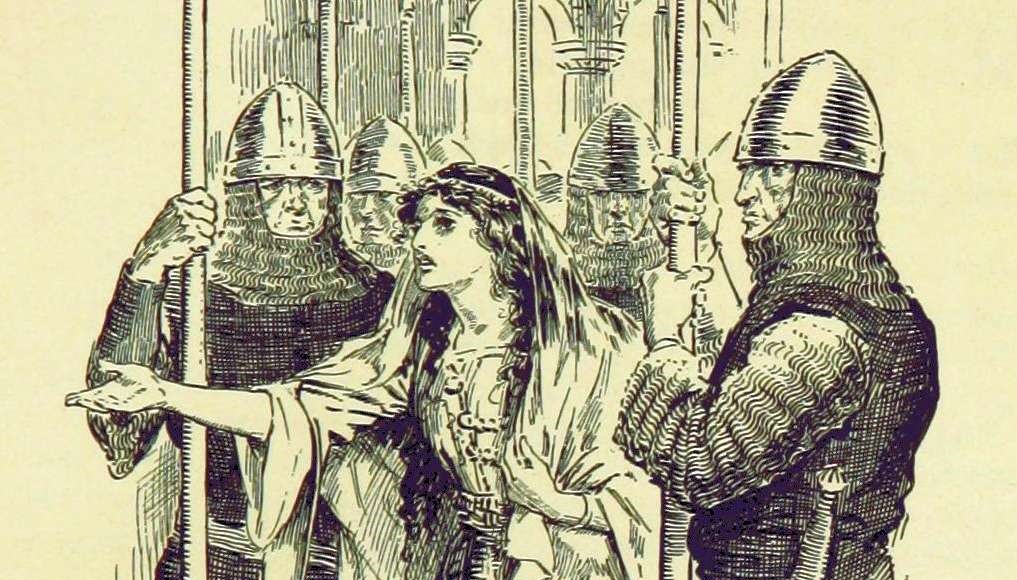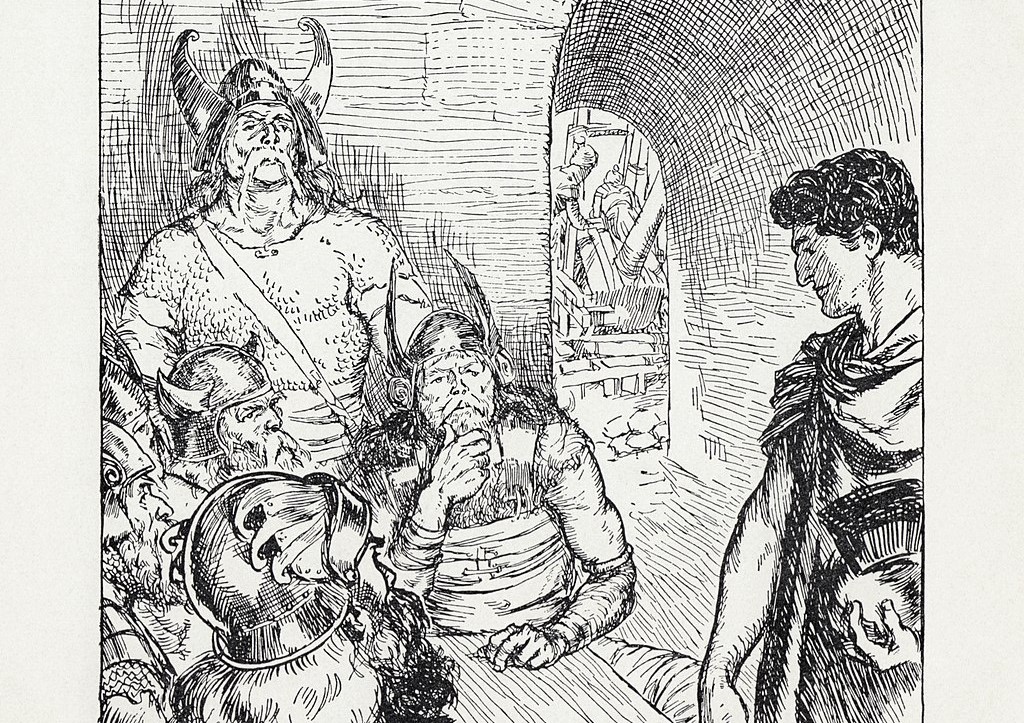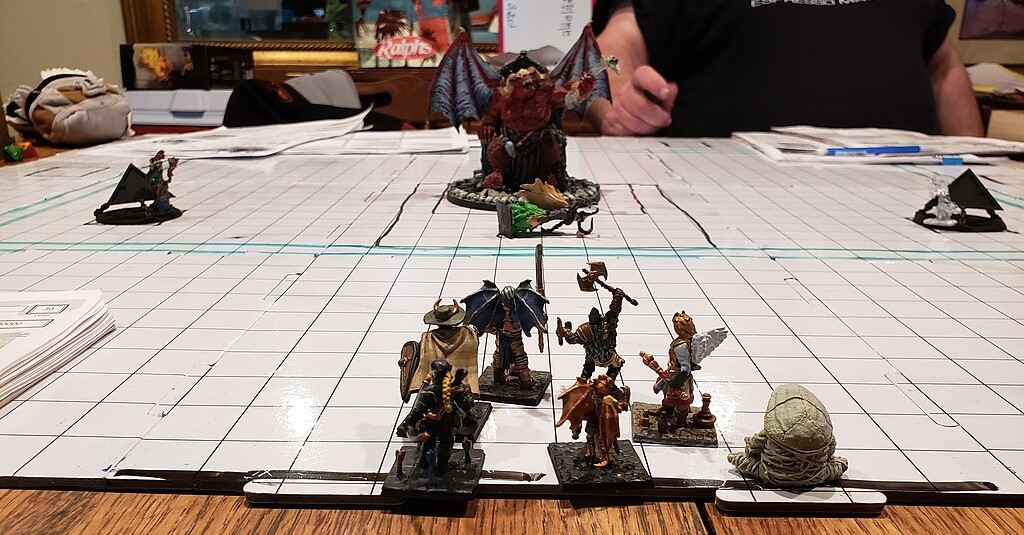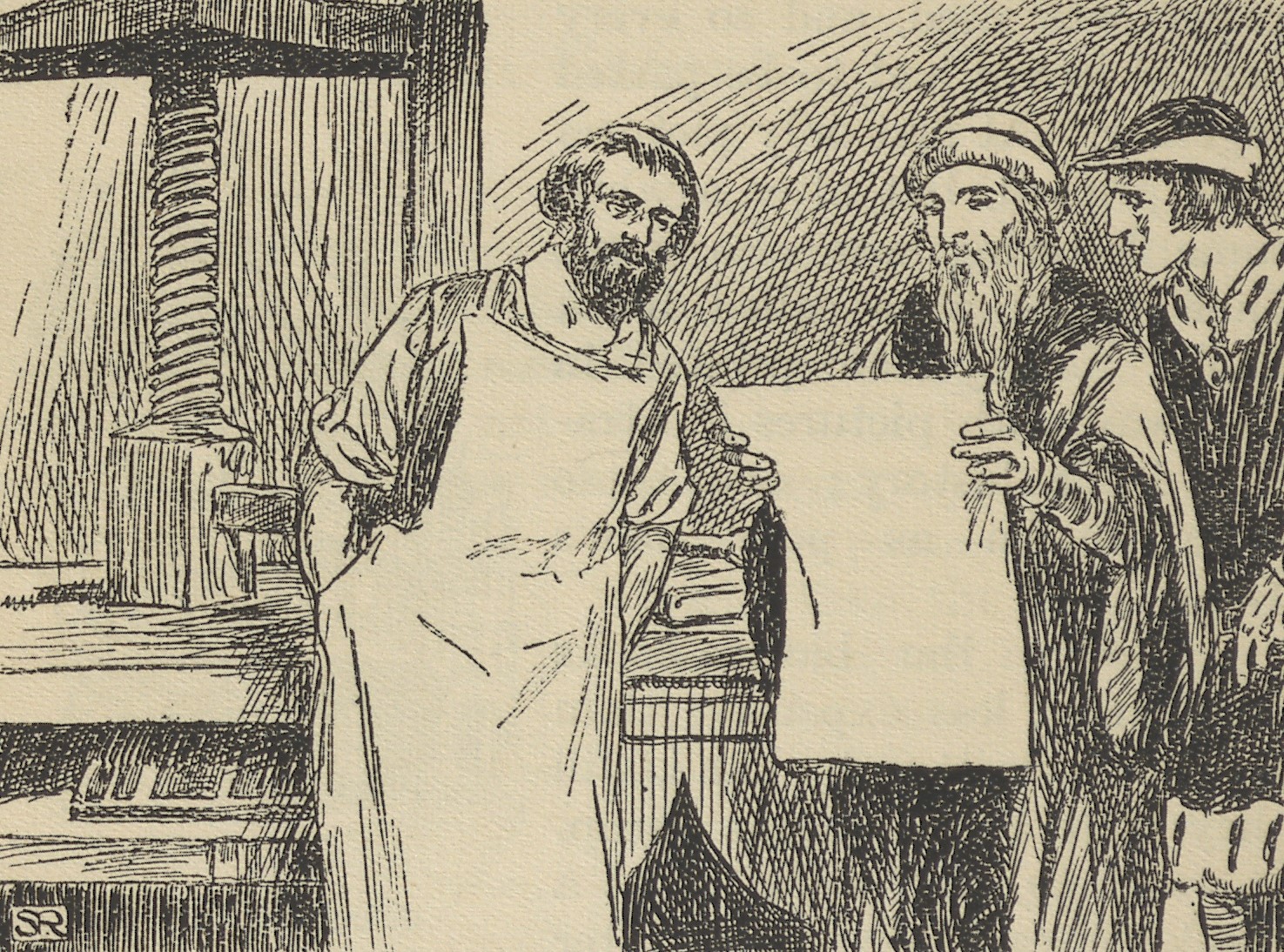Earlier this month, I posted an article about why you need to focus your TTRPG worldbuilding on playable elements. Today, I want to dig into one of the most important parts of any fictional game world — the TTRPG NPCs that populate it!
There’s a plethora of advice out there about how to create memorable stand-out NPCs, but I feel like a lot of this advice is focused on creating NPCs that are great from a literary standpoint.
Instead, I want to talk about how you can make great NPCs that support gameplay.
Good TTRPG NPCs Need The Players

When your players gather around the table, they generally aren’t there because they want to sit back and watch you give a solo dramatic performance of 15 different characters.
They’re there to explore their own characters, and to influence the world you’ve created through those characters’ actions.
The players are the star of the show, and good TTRPG NPCs make them feel like the star.
When introducing an NPC to your world, here’s a clarifying question: what is the thing this NPC wants that only the players can provide?
It might be:
- Social – the NPC needs the party’s help navigating a tricky political situation or maybe convincing the magistrate that they’re innocent of a crime they didn’t commit.
- Exploration – the NPC needs the party to explore an uncharted nebula, searching for a lost space probe. On the flip side, maybe the NPC is found far from home, and needs the party to help them get back safely through hostile territory.
- Combat – the NPC needs the party to slay a terrifying monster that keeps attacking their trade caravans, or maybe to capture a unique specimen of a alien creature for research.
Whatever it is, it transforms the players’ interaction with that NPC from “here, look at this” to “here, do something about this” and doing something is really the whole reason we play TTRPGs instead of watching movies or reading books.
Every time the party encounters an NPC that needs something that only they can provide, it instantly creates playable content for your campaign.
Good TTRPG NPCs Don’t Overshadow The Players
This seems to be a controversial one, because I keep seeing articles about how to give your NPCs these huge bombastic personalities — but I don’t think they need them!
As Game Masters, we sometimes want to explore really fascinating characters of our own, especially if it’s been a long time since we’ve approached the game from the player side of the table.
The problem with this is you can stray into making your NPCs into Certified Badasses™ who overshadow the players.
Remember how we just talked about the NPCs needing the players to do something for them? If the NPCs could do those things themselves, we’d all be sitting around reading a book about them instead of playing a game and holding our breath to see how the dice roll.
In ancient Greek plays, you often had an entity called the chorus who served as a faceless or nondescript representation of the general population of the story. Their purpose was to provide background information, summarize events, and provide commentary.
I think many NPCs can fall into this category — sometimes a shopkeep or farmer is just a shopkeep or farmer and doesn’t need an entire elaborate backstory, an eyepatch, a magic sword, and a vendetta.
Of course, you probably have a few key players in any campaign that deserve more detail — a complex villain, a unique patron, queens or commanders around whom major events of the campaign coalesce.
Obviously, we need those kinds of NPCs to tell the stories we want to tell, but many of the others can exist in a sort of muted state — detailed enough to have one or two mannerisms or details to help the players differentiate Merchant A (she’s the one with a wicked scar on his face) and Merchant B (he’s the short fat one that sniffs a lot), but otherwise, simple enough to fade into the background and let the players be the coolest figures in the campaign.
Pay Attention to NPC Power Level

Particularly in leveled games like Dungeons and Dragons, it’s easy to think to yourself “oh, the king’s court wizard MUST be a 20th level character.” After all, how else did they get the position of being the highest ranked mage in all the land?
On the other hand, if the king has a 20th level wizard at his beck and call…why on earth would he ever need a ragtag party of 6th level characters?
This is true of other games, as well. If you’re playing a game like GURPS and your NPCs have point totals that vastly outclass your players, why aren’t the NPCs dealing with the world’s problems?
While there may be a need to have powerful figures in powerful positions in your world, consider capping their power level.
In Dungeons and Dragons, I like making the most powerful NPCs no more than 10th or 12th level, with lesser NPCs closer to 6th to 8th level at most — and many townfolk are simply statless figures of no consequence!
This allows the most powerful NPCs to feel like key movers and shakers in the world, while still allowing plenty of room for the players to outpace them.
Good TTRPG NPCs Are Interested In The Players

Many DMs have a tendency to have NPCs do a lot of telling — telling the players the world’s history and lore, telling the players where to go to find an artifact, telling the players what they need to do to complete an objective, for example.
These are all important tasks for an NPC, of course, and methods by which the DM can exert influence on the players and the game world. Unfortunately, when we spend too much time having NPCs do a lot of telling, the players start zoning out. They didn’t come to your game table to be talked at — they came there to do something.
But something interesting happens when you start asking through your NPCs:
- An uncertain prince asks the party for their advice on how to handle a situation.
- A youngster asks one of the party members to tell them stories about the sights they’ve seen in the space corps.
- A wizard asks the party to tell them the lore about an item — it requires some setup, of course, perhaps with the party learning about the item and its history through stone tablets in a forgotten tomb two adventures back.
When you start having NPCs ask players their opinions or ask them for information, it opens the door to roleplaying.
In a roleplaying game, that means we’re naturally creating more gameplay, instead of merely providing one-way exposition from the DM towards the players.
Don’t Forget The Game

Ultimately, tabletop roleplaying games are just that — games. They exist in a different state than books, movies, or other story-based media, and characters written for them serve different functions.
In roleplaying games, NPCs exist to convey information, to provide adventure hooks, to serve as interesting widgets for the players to interact with — but they should never steal the spotlight from the players themselves.
If you find that an NPC is dominating the game, there’s a simple solution: take them out. A glass of poisoned wine, a befuddling head injury, a planar trap that jaunts them into another dimension. These are all useful solutions for this type of problem.
Most likely, the story of the campaign doesn’t rely so heavily on that NPC that their sudden absence will derail it too much — and frankly, it shouldn’t, if you remember one simple rule:
In a TTRPG, the players are the engines of the story.


